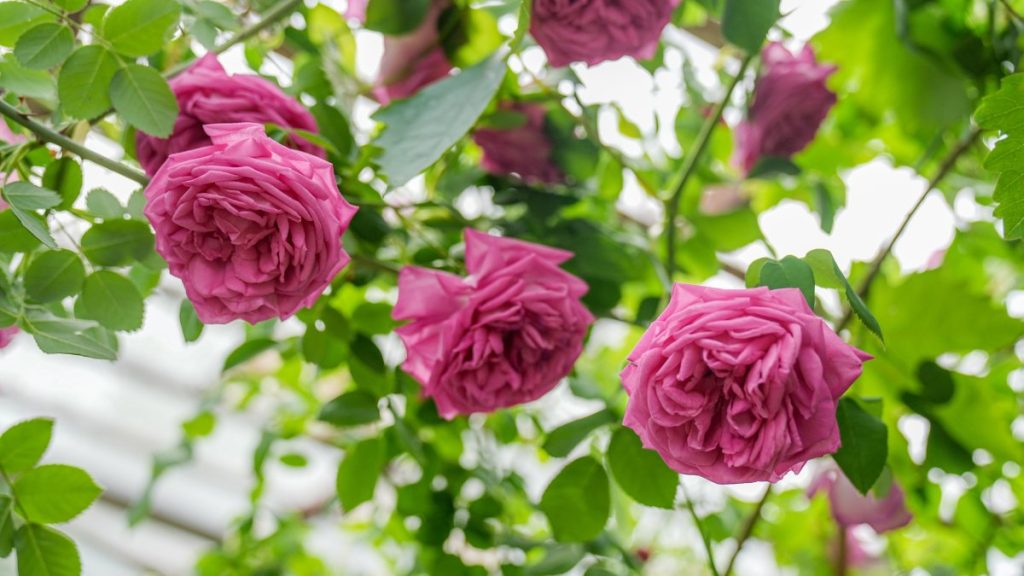A once-ubiquitous flower that used to adorn gardens across Diyarbakır is now being protected in greenhouses, as part of efforts to preserve and revive the endangered Muhammediye rose.
The rare rose, known for its distinct fragrance and short blooming season of just 20 days each year, is being cultivated at the Southeastern Anatolia Project (GAP) International Agricultural Research and Training Center. The initiative aims to safeguard the flower, expand its cultivation and increase its commercial value in the cosmetics, food and pharmaceutical industries.
Fethullah Tekin, an agricultural engineer in the center’s medicinal and aromatic plants department, told the state-run Anadolu Agency (AA) that the center has conducted nearly three decades of research on medicinal and aromatic plants.
Tekin said the Muhammediye rose is among nearly 120 plant species undergoing preservation and development at the center. The work focuses on protecting genetic resources and restoring native flora threatened by rapid urbanization and the decline of garden culture.
“The Muhammediye rose has seen its natural habitat shrink over time,” Tekin said. “We are currently growing it in what we call our ‘gene bank’ plots. This rose, unique to Diyarbakır, has a high economic potential thanks to its aroma. Historically, rose gardens surrounded the city. But this flower has almost vanished. Our goal is to bring back those gardens and revive this forgotten beauty.”
The team is also working on breeding techniques in the greenhouses and has plans to create a “scent tunnel” that would provide a therapeutic experience for visitors.
“The fragrance of the Muhammediye rose has calming and stress-relieving properties,” Tekin said. “Walking through a tunnel filled with its scent could offer a form of aromatherapy.”
The rose is prized not only for its scent but also for its versatility. Tekin noted that nearly 70 products can be derived from it, spanning several industries.
Associate professor Mustafa Abdullah Yılmaz, a faculty member in the Department of Analytical Chemistry at Dicle University’s Faculty of Pharmacy, emphasized the historical significance of the Muhammediye rose, tracing its roots back to 2600 B.C.
“This is a very special rose that blooms only once a year for about 20 days,” Yılmaz said. “Locals use its petals to make jam and traditional sherbets during this brief period. It has a unique aroma unlike any other. Its story dates back thousands of years.”
Researchers hope that by reviving the Muhammediye rose, they can reconnect the city with its botanical heritage and unlock new economic opportunities based on the flower’s rich historical and aromatic legacy.


